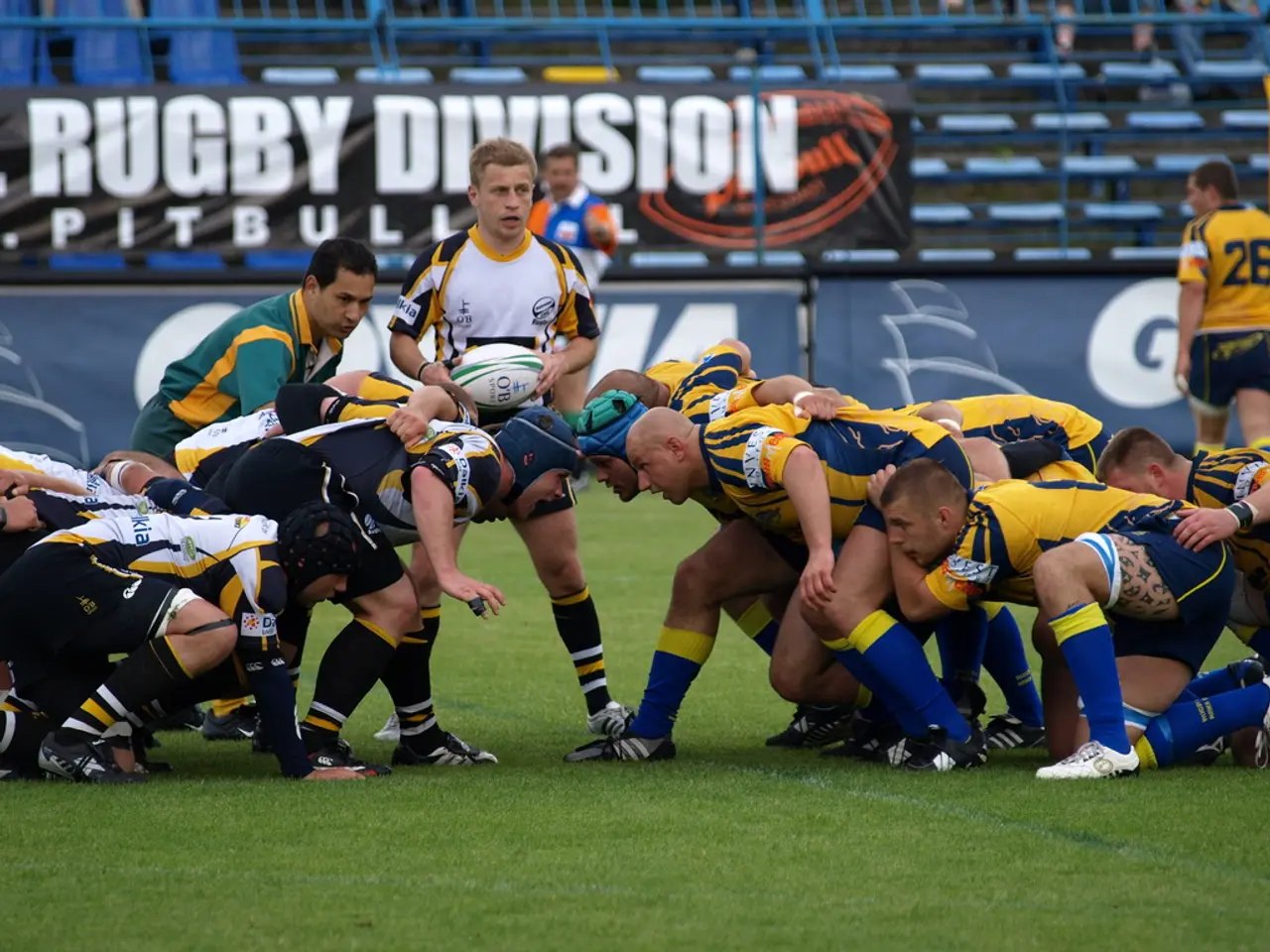Impact of Rugby League on School and Youth Development Schemes in Australia
In Australia, rugby league is more than just a game. It's a powerful tool for physical, social, and emotional development among young people. School programs across the country are integrating rugby league into their curriculum, fostering a holistic approach to youth development.
Technology is used to promote these programs and engage students and parents alike, making it easier for everyone to get involved. Collaborations between schools and local rugby clubs further enhance resources and facilitate joint events and competitions.
Rugby league lays the foundation for well-rounded individuals, promoting fitness, teamwork, and community ties. Skills learned in sports often translate into academic success and personal growth.
Programs like "League Stars" and "NRL School Catalyst" significantly impact student growth, fostering leadership skills and mental health benefits. Coaching is a vital component of these development programs, inspiring young athletes and serving as role models.
Coach development is another opportunity for improvement, ensuring that coaches understand the values of the sport. Coaches play a vital role, guiding young players both on and off the field, instilling work ethic and discipline.
Youth participation in sports, including rugby league, is crucial for many reasons. It encourages students to stay active, contributing to better physical health during their formative years. Regular physical activity is essential in schools for numerous reasons, such as fostering mental and physical well-being, managing stress, and improving concentration.
Participation in school programs also fosters social cohesion, bridging gaps between different backgrounds and expanding perspectives. Youth development programs offer structured environments where athletes can thrive, from primary school to secondary level.
Successful school programs illustrate the positive impact of rugby league in youth development. For instance, clubs like the South Sydney Rabbitohs run enhanced pathways programs covering junior recruitment, development, and retention, with successful representation of young players in national school championships and junior competitions.
Schools such as Marsden State High School offer Rugby League Excellence programs that combine academic and athletic training, prioritizing player wellbeing and cultivating strong character, leadership, and community contribution among students. These programs are linked to professional clubs, providing clear pathways to professional rugby league careers.
State-level squads like the NSW Waratahs U16s select talented school and club players to train under professional coaching and facilities. This high-level exposure aids skill development and gives young athletes insight into professional sporting careers.
Beyond physical training, rugby league programs help youth develop respect, confidence, leadership, and positive community roles, fostering holistic personal growth alongside athletic progression. Studies show that physical development among youth in various rugby league academies has limited variance, indicating that productive development also depends on non-physical factors like coaching quality, psychological support, and holistic development frameworks, which are integral parts of school and club programs.
Local clubs often partner with schools, making it easier for students to engage with the sport. Community engagement is a key benefit derived from participation in rugby. Schools often organize events that connect students with local clubs, fostering a sense of belonging. Community engagement is essential in this framework, leading to opportunities for scholarships, mentoring, and advanced training programs.
Engaging high-profile players as mentors could inspire youth participation. Inclusivity remains a key focus for many rugby programs, with strategies such as offering training that promotes diversity and providing extra assistance for newcomers.
In conclusion, rugby league significantly contributes to youth development in Australia through structured school and pathway programs that focus on athletic skills, personal character, leadership, and community contribution. These programs serve as high-performance development environments and pathways to professional opportunities such as the NRL.
Education and self-development can be enhanced through the integration of sports like rugby league into curriculum, as skills learned on the field often translate into academic success and personal growth. Sports participation, including rugby league, also fosters social cohesion and contributes to physical well-being, making it an essential component of holistic development programs in schools.




